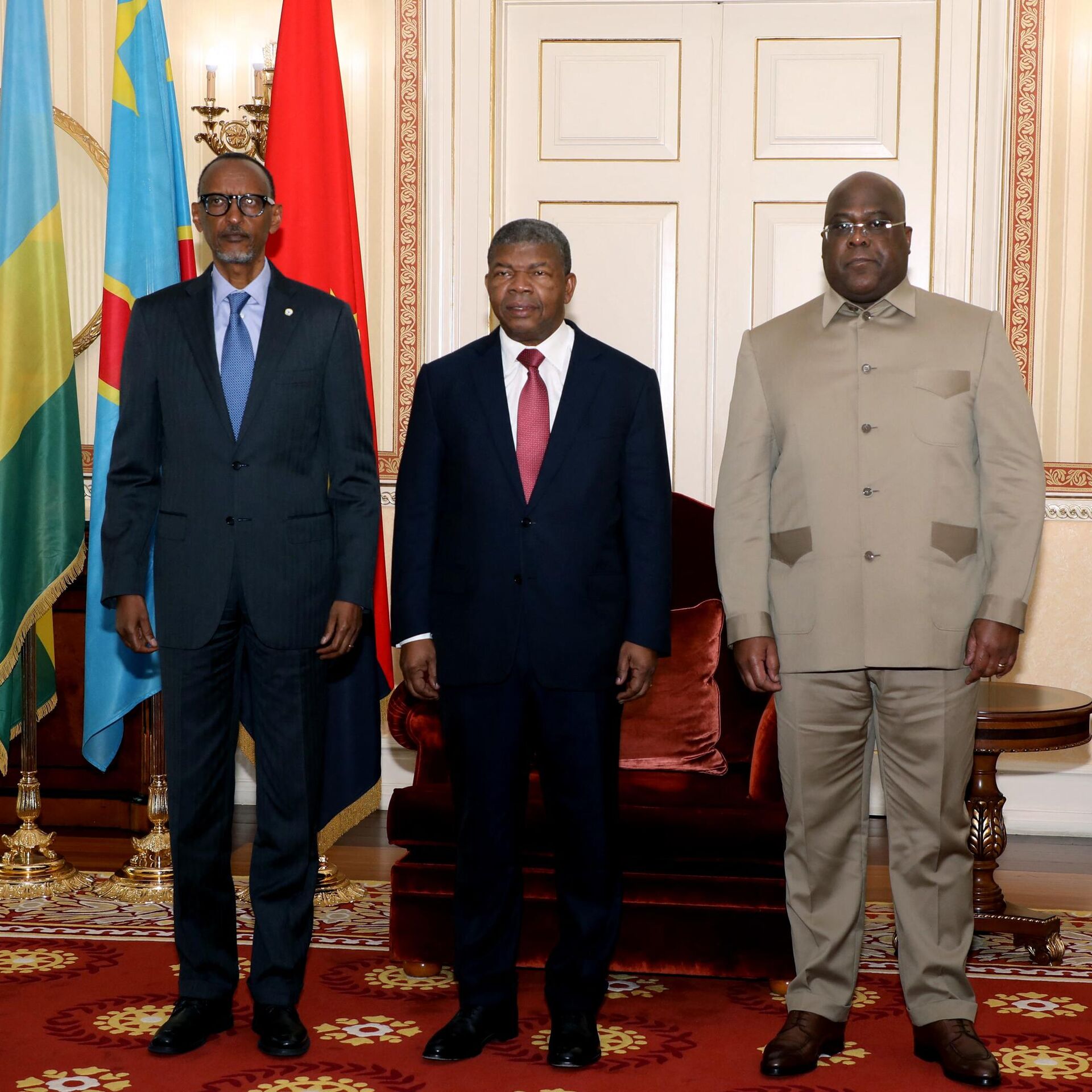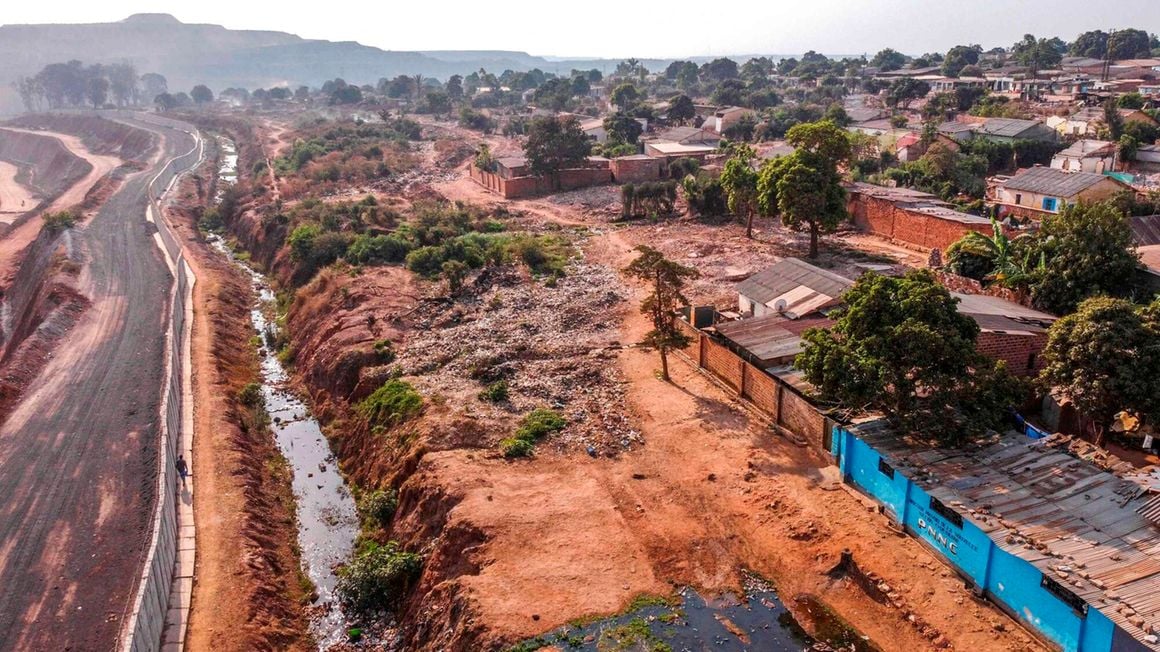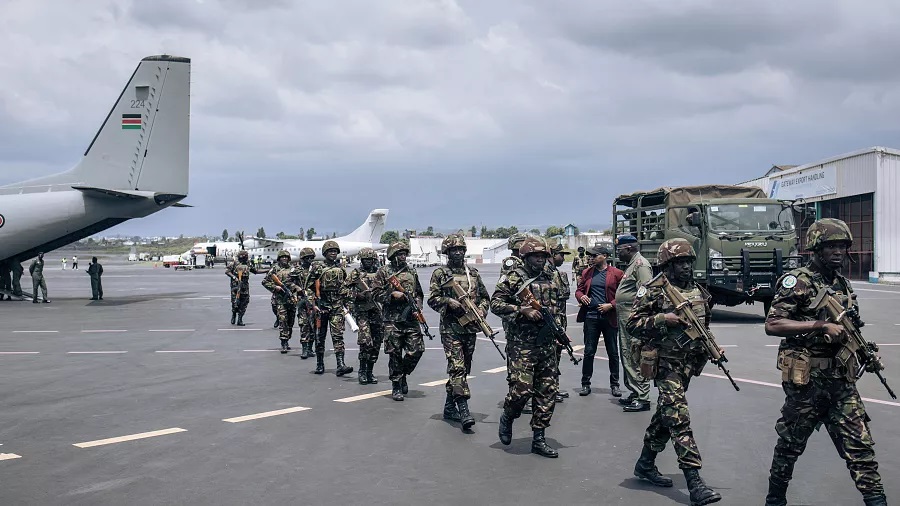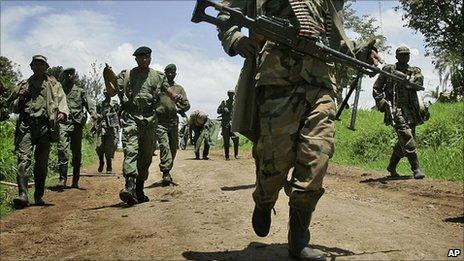Regional
DRC: At this rate, will Lourenço, Uhuru efforts bear fruit?

The facilitator
of the East African Community-led Nairobi Peace Process aimed at bringing peace
to the restive eastern region of the Democratic Republic of Congo (DRC), Uhuru
Kenyatta, on November 16, held discussions with different Congolese leaders in
an effort to find solutions to the insecurity in the east of their country.
Joined
by EAC Secretary General, Dr Peter Mathuki, and the Special Representative of
President Félix Tshisekedi, Prof Serge Tshibangu, Uhuru sought to understand their
perspective on the situation and recommendations on restoring peace in the
region.
Uhuru’s
visit was preceded by that of the facilitator of the Luanda roadmap, Angolan
President, João Lourenço, to Kigali and Kinshasa on November 11 and 12,
respectively, as part of regional efforts to de-escalate tensions. But the big
question remains: will these efforts bear fruit?
Under
the July 2022 Luanda roadmap, countries agreed to normalize their political and
diplomatic relations, and establish a climate of trust between the states of
the region, create optimal conditions for dialogue, and political consultation
to resolve the current security crisis in eastern DRC.
The
roadmap demanded the immediate cessation of hostilities, requested the Congolese
government to deal with the M23 situation domestically in line with the Nairobi
Peace process recommendations while tasking Kinshasa to address the issue of
the presence of FDLR, and its splinter groups (CNRD, FLN, RUD-Urunana, and
FPPH-Abajyarugamba). The latter groups are the main cause of tensions between Rwanda
and DRC and play a major role in the insecurity of east of DRC.
Contrary
to the efforts being put in place by both peace facilitators, DRC’s actions
indicate that it is not committed to the implementation of the talks. Reports
have revealed that the Congolese army never ceased to closely collaborate with the
Rwandan genocidal militia, FDLR, and giving ammunitions to armed groups,
including CMC-Nyatura, APCLS, Mai Mai Yakatumba to fight other local armed
groups such as M23 and Twirwaneho.
On
the other side of the border, there seems to be frustration as effort was made
to have peace.
Rwanda
honored its commitments and played its part in solving the M23 issue, by
disarming the rebellion's ex-fighters from the Jean-Marie Runiga faction who had fled
to Rwanda. Kigali disarmed them and handed over their weapons to DRC
authorities. Around 680 M23 combatants were cantoned to the country’s Eastern
Province, far away from the Rwanda-DRC border. To this day, the M23 faction
that is in Rwanda is still cantoned far away from the Congolese border and are
not involved in the current fight against FARDC.
Rwanda
also facilitated various engagements between the ex-M23 representatives and
their government. The process culminated in an agreement and voluntary
repatriation roadmap signed by the parties in 2019. Despite the existence of
the repatriation roadmap and the ex-M23/Runiga faction readiness to return
home, the DRC Government has shown no interest to receive them.
During
his stay in DRC, Uhuru said that his mandate is not to instruct the Congolese
government on what to do but to help facilitate and bring peace among the
concerned parties.
“We
have not come here with particular mindset to dictate what should happen but
rather in the spirit of our understanding and mandate that has been given to
us, we came here to listen to the people of the Congo because our job is not to
tell them what they need to do but just to help facilitate and bring peace
amongst the different parties,” he said while briefing the press.
Instead
of war, the best possible way of restoring peace and security in eastern DRC
was, and still is, honoring the peace treaties the country signed with armed groups.
But none has been implemented. For instance, there is a March 23, 2009 peace
agreement that the DRC government signed with the former Congrès national Pour la Défense du Peuple
(CNDP). Kinshasa’s failure to implement the latter led to the creation of the
M23 rebellion.
Other
peace agreements the country failed to fulfill are the December 2013 Nairobi
Declarations between DRC and ex-M23; the agreement between the Congolese Government
and Ex-M23 living in Rwanda and the joint implementation roadmap on their
voluntary repatriation, facilitated by Rwanda on October 2019; the agreement between the
DRC and M23/Makenga faction on ceasefire, facilitated by Uganda in April 2022;
and other agreements the DRC signed with other local armed groups.
Top Congolese
officials and high ranking soldiers have repeatedly declared that their country
will not dialogue with the M23 rebels, saying that they won’t negotiate with a “terrorist
group.”
It
is then safe to say that Uhuru and Lourenço’s efforts to bring peace in eastern
DRC will not yield anything positive if the Congolese government is unwilling
to effectively implement the peace agreements it signed with its rivals.






.jpg-20221116095818000000.jpg)